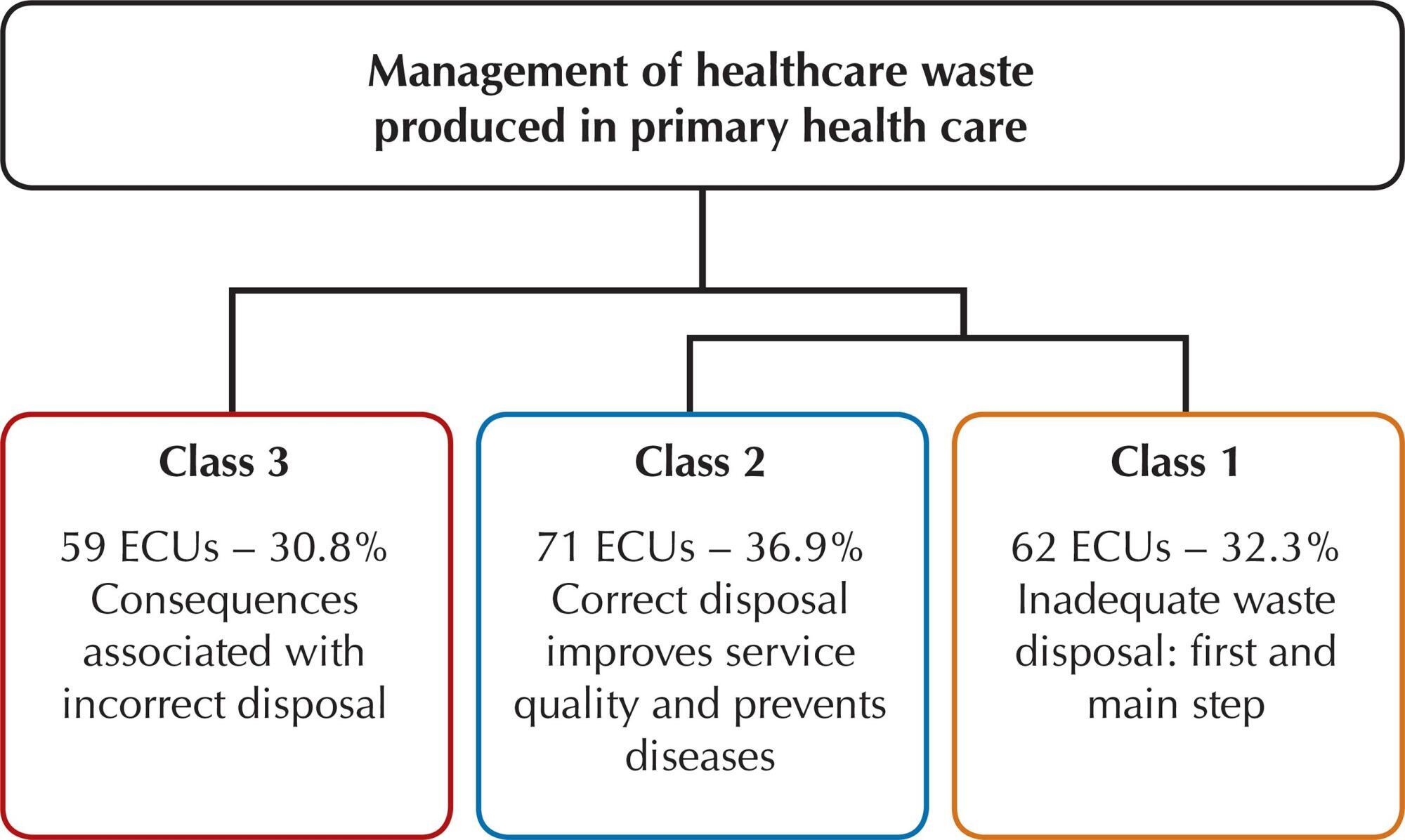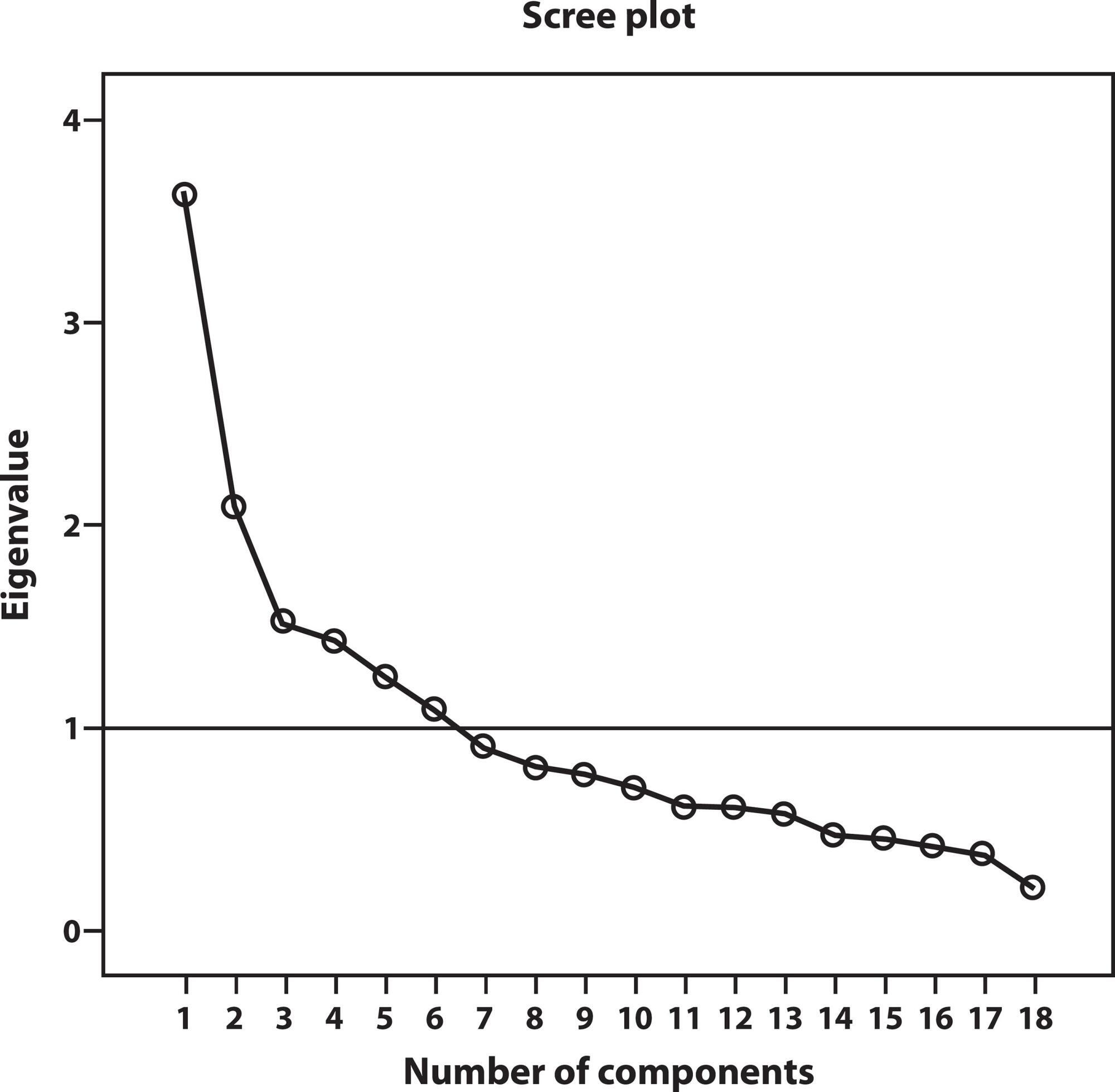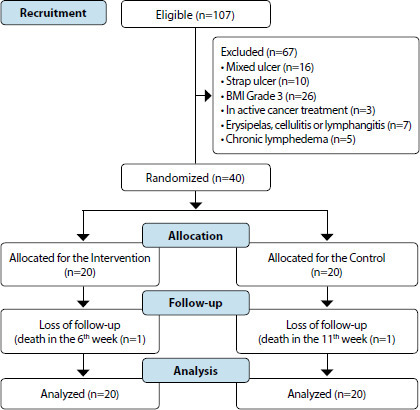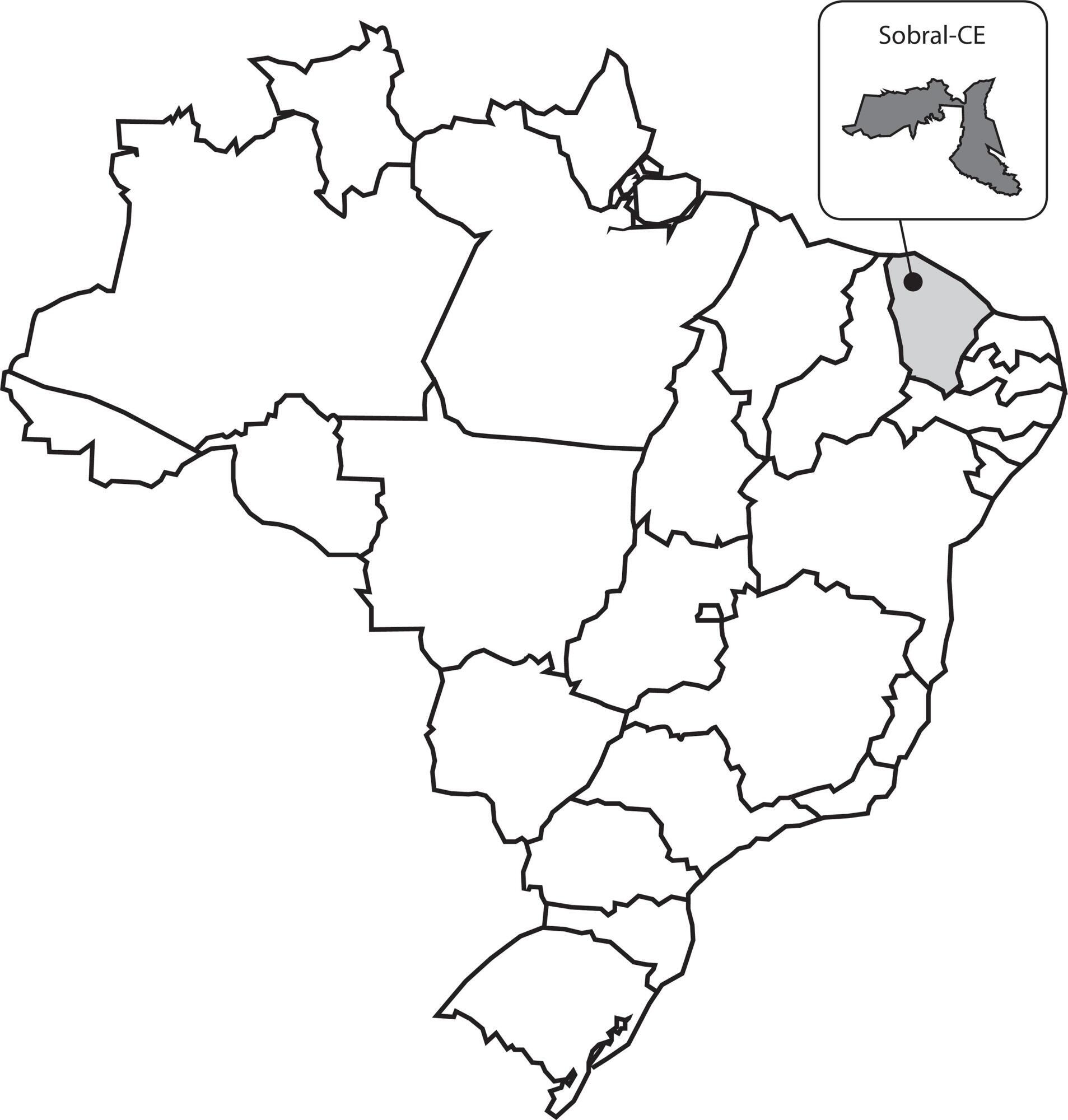-
RESEARCH01-01-2018
Developmental Care: assistance of nurses from Neonatal Intensive Care Units
Revista Brasileira de Enfermagem. 2018;71:2758-2766
Abstract
RESEARCHDevelopmental Care: assistance of nurses from Neonatal Intensive Care Units
Revista Brasileira de Enfermagem. 2018;71:2758-2766
DOI 10.1590/0034-7167-2017-0912
Views0See moreABSTRACT
Objective:
to analyze the Developmental Care in nursing care for Newborns in critical Neonatal Intensive Care Units.
Method:
a qualitative study with 11 nurses from Neonatal Intensive Care Units of a city in the State of São Paulo countryside, based on the Developmental Care. Data collection was based on non-participant observation, documentary research in medical records and semi-structured interviews. The Symbolic Interactionism was adopted as theoretical framework, and the Bardin Content Analysis, as method of analysis.
Results:
nurses have knowledge about Developmental Care; however, there are dissonances with doing them. The analysis is presented from two thematic categories: “Nurses’ performance in the Developmental Care” and “Nurse, Family and Developmental Care”.
Final considerations:
it is necessary to encourage reflections on the care of nurses regarding Developmental Care, and to foster sensitivity and perception in relation to the executed and registered.
-
RESEARCH01-01-2018
The production of the professional master’s degree in nursing of the Federal University of Santa Catarina, 2013-2016
Revista Brasileira de Enfermagem. 2018;71:2751-2757
Abstract
RESEARCHThe production of the professional master’s degree in nursing of the Federal University of Santa Catarina, 2013-2016
Revista Brasileira de Enfermagem. 2018;71:2751-2757
DOI 10.1590/0034-7167-2018-0153
Views0See moreABSTRACT
Objective:
To summarize the production of the Professional Master’s Program in Nursing Care Management of the Federal University of Santa Catarina, between 2013 and 2016.
Method:
electronic documental research. After data collection, we analyzed the numbers of defenses in relation to what was predicted by the respective public notices; as well as sex, training time and professional area of the authors; scenario, context and research line; general objective, analysis support model, methodological approach, instruments/techniques of data collection, and technique of analysis; and, finally, technological productions.
Results:
57 dissertations were found and subjected to analysis. The highest number of defenses took place in 2016, in the public scenario, in a care context, with a qualitative approach and having assistance protocols as a final product.
Conclusion:
Although the country has weaknesses in its educational system, results of the post-graduate level stand out through the technological productions of professional master’s studies in nursing.
-
RESEARCH01-01-2018
Electroconvulsive therapy: historical construction of nursing care (1989-2002)
Revista Brasileira de Enfermagem. 2018;71:2743-2750
Abstract
RESEARCHElectroconvulsive therapy: historical construction of nursing care (1989-2002)
Revista Brasileira de Enfermagem. 2018;71:2743-2750
DOI 10.1590/0034-7167-2018-0168
Views0See moreABSTRACT
Objective:
to describe the nursing care performed by the nursing team to the person with mental disorder submitted to ECT and to analyze the implications of the Psychiatric Reform in this care.
Method:
socio-historical study, which uses the Thematic Oral History method.
Results:
the nursing team is present in a continuous way in the monitoring of people submitted to ECT, performing care before, during and after the same, as well as visualizing the evolution of the technique and also of nursing care itself, however, does not recognize the Psychiatric Reform as agent for this change.
Final considerations:
the Brazilian Psychiatric Reform triggered a process of humanization of nursing knowledge, influencing the care of the person with mental disorder submitted to ECT, with this, care practices also changed, a law was approved, regulating its practice, and its application was decreasing.
-
RESEARCH01-01-2018
Nurses’ perspective on health education in Diabetes Mellitus Care
Revista Brasileira de Enfermagem. 2018;71:2735-2742
Abstract
RESEARCHNurses’ perspective on health education in Diabetes Mellitus Care
Revista Brasileira de Enfermagem. 2018;71:2735-2742
DOI 10.1590/0034-7167-2018-0396
Views0See moreABSTRACT
Objective:
to grasp the perspective of nurses on health education in the process of caring for people with Diabetes Mellitus in Primary Care.
Method:
a descriptive study of a qualitative nature carried out with 13 nurses from the Family Health Strategy in Southern Brazil. The data were collected in November and December of 2017, through recorded interviews, which were submitted to content analysis, thematic modality.
Results:
three categories emerged, which show from the perspective of nurses, the influence of structural and assistance characteristics in the development of educational actions; outcomes of these actions, and possibilities to increase their quality as central to the nursing action.
Final considerations:
there are still gaps in the structuring of public health policies, especially in the process of managing and caring for people with diabetes, which limits quantitatively and qualitatively the development of educational actions in Primary Care.
-
RESEARCH01-01-2018
Nursing professionals’ knowledge regarding the management of waste produced in primary health care
Revista Brasileira de Enfermagem. 2018;71:2728-2734
Abstract
RESEARCHNursing professionals’ knowledge regarding the management of waste produced in primary health care
Revista Brasileira de Enfermagem. 2018;71:2728-2734
DOI 10.1590/0034-7167-2018-0308
Views0See moreABSTRACT
Objective:
To evaluate the knowledge of Nursing professionals regarding waste management in primary healthcare services.
Method:
Descriptive study with a mixed approach, developed with 42 nursing professionals who worked in basic health units of a capital in the Brazilian Northeast Region. Quantitative variables were analyzed by the SPSS 20.0 program. Reports were processed by the IRaMuTeQ software, analyzed according to the descending hierarchical classification, and grounded on the Collective Subject Discourse.
Results:
Low knowledge scores were obtained, associated with specific socioeconomic and training variables. Analysis of collected reports allowed to identify three classes: “Inadequate waste disposal: first and main step”; “Correct disposal improves service quality and prevents diseases”; and “Consequences associated with incorrect disposal”.
Conclusion:
The knowledge of professionals falls short of the expectations to adequately manage waste produced in primary health care and is concentrated on the initial steps, mainly the disposal process.

-
RESEARCH01-01-2018
Between State, society and family: the care of female caregivers
Revista Brasileira de Enfermagem. 2018;71:2720-2727
Abstract
RESEARCHBetween State, society and family: the care of female caregivers
Revista Brasileira de Enfermagem. 2018;71:2720-2727
DOI 10.1590/0034-7167-2018-0111
Views0See moreABSTRACT
Objective:
to investigate the care provided by family female caregivers of elderly dependents who have been monitored by public home care and its social repercussions, discussing the facets between State, society and families.
Method:
descriptive cross-sectional study, with 45 caregivers of elderly patients accompanied by Home Care Services. Data were collected by means of a structured script. The discussion was elaborated in light of the works “Cuidado e cuidadoras: as várias faces do trabalho do ‘care'” (Care and female caregivers: the several faces of the care work) and “Gênero e trabalho na França e no Brasil” (Gender and work in France and Brazil).
Results:
Most caregivers were women (95%) who performed home care at several places and incorporated hospital equipment into everyday life. They have been caregivers for four and a half years, working 18 hours a day on average; they presented average age of 55 years; 82% were ill, and 43% had no income.
Conclusion:
the study demonstrated the relevance of the care of female caregivers to society as well as their invisibility to public health and social policies.
-
RESEARCH01-01-2018
Quality of Primary Health Care in Brazil: patients’view
Revista Brasileira de Enfermagem. 2018;71:2713-2719
Abstract
RESEARCHQuality of Primary Health Care in Brazil: patients’view
Revista Brasileira de Enfermagem. 2018;71:2713-2719
DOI 10.1590/0034-7167-2017-0656
Views0See moreABSTRACT
Objective:
To describe the evaluation of patients that participated in the National Program for Improving the Access and Quality in Primary Health Care (Programa Nacional de Melhoria do Acesso e da Qualidade na Atenção Básica) for the comprehensive healthcare, the bond and the coordination of care in the country’s macro-regions.
Method:
A descriptive, transversal study, from interviews with 65,391 patients of Primary Health Care, in 3,944 municipalities regarding the use of health services.
Results:
The professionals seek to solve the patients’ problems in their unit (73.1%) but focused mainly on the scope of the appointment (65.6%) and offering care away from the population’s reality (69.4%). Difficulties in the rescue of clinical history were referred (50.3%) and in the care performed in other health services (29.2%).
Conclusion:
The comprehensive health care, the bond and the coordination of care remain challenges to the Primary Health Care in the country, requiring reflections on the implementation of national policies, especially considering the regional diversities in Brazil.
-
RESEARCH01-01-2018
Role-playing: teaching strategy that encourages reflections on nursing care
Revista Brasileira de Enfermagem. 2018;71:2706-2712
Abstract
RESEARCHRole-playing: teaching strategy that encourages reflections on nursing care
Revista Brasileira de Enfermagem. 2018;71:2706-2712
DOI 10.1590/0034-7167-2017-0733
Views0See moreABSTRACT
Objective:
Describe the reflections of nursing students on nursing care through the use of role-playing.
Method:
Qualitative research with descriptive-exploratory approach and documentary base. The data were collected from portfolios of 32 students from an undergraduate course in the Southern Brazil. The analysis of the data followed the steps of sorting, classification in structures of relevance, synthesis and interpretation.
Results:
Two empirical categories were obtained: (1) Feelings in the act of taking care and receiving care and (2) Reversing roles: benefits to the nurse in the act of caring.
Final considerations:
The use of role-playing as a strategy for teaching the theme of care to undergraduate students encouraged reflections about the skills and abilities necessary for the act of taking care and favored the students’ self-perception as nurses, appropriating the essence of their future profession: care.
-
ORIGINAL ARTICLE02-10-2020
Stress and health risk behaviors among university students
Revista Brasileira de Enfermagem. 2020;73(1):e20180035
Abstract
ORIGINAL ARTICLEStress and health risk behaviors among university students
Revista Brasileira de Enfermagem. 2020;73(1):e20180035
DOI 10.1590/0034-7167-2018-0035
Views0See moreABSTRACT
Objective:
To analyze the level of stress and its relationship with health risk behaviors among university students.
Method:
Cross-sectional analytical study carried out at a higher education institution in Picos-PI. A total of 377 students were evaluated for socio-demographic and academic variables, stress profile, sleep quality, alcohol use, smoking habits and level of physical activity. The Statistical Package for the Social Sciences (SPSS), version 20.0 was used for data processing and analysis.
Results:
Sleep quality was poor for 65.3% of the subjects, and sleep disturbances were found in 17.0%. Stress was observed in 68.7% of the sample. Stress was associated with the following variables: gender, time in the institution, poor sleep quality.
Conclusion:
Most of the students evaluated present some level of stress associated with poor sleep quality, which is a risk to the quality of life of these individuals.
-
09-16-2019
Construct validation: coping with HIV/AIDS in Primary Health Care
Revista Brasileira de Enfermagem. 2019;72(5):1173-1181
Abstract
Construct validation: coping with HIV/AIDS in Primary Health Care
Revista Brasileira de Enfermagem. 2019;72(5):1173-1181
DOI 10.1590/0034-7167-2018-0734
Views0See moreABSTRACT
Objective:
To validate the construct and measure the trustworthiness of a questionnaire aimed at assessing HIV/AIDS coping actions developed by health professionals in Primary Health Care.
Method:
A methodological study carried out with 397 primary health care professionals in two municipalities in the Northeast region of Brazil. The construct validity was developed by the exploratory and confirmatory factor analysis, and the reliability analyzed by the reliability and reproducibility.
Results:
The validation determined six factors retention that composed the six domains of the questionnaire. Internal consistency was 0.91 and quality of the confirmatory analysis adjustment was 0.998 for Goodness of Fit Index. The domains presented Kappa values between 0.833 and 0.997.
Conclusions:
The final questionnaire was composed of 18 items and presented feasibility of application, and potential to evaluate actions for HIV/AIDS control in Primary Health Care.

-
ORIGINAL ARTICLE11-12-2022
Low-laser light therapy in venous ulcer healing: a randomized clinical trial
Revista Brasileira de Enfermagem. 2022;75(3):e20210396
Abstract
ORIGINAL ARTICLELow-laser light therapy in venous ulcer healing: a randomized clinical trial
Revista Brasileira de Enfermagem. 2022;75(3):e20210396
DOI 10.1590/0034-7167-2021-0396
Views0See moreABSTRACT
Objectives:
to compare the effect of adjuvant low-laser light therapy versus conventional treatment alone on venous ulcer healing.
Methods:
this is a randomized clinical trial with 40 patients randomized equally to a control group (topical and compressive treatment) and intervention group (adjuvant low-laser light therapy). Outcomes of interest were Wound Healing: Secondary Intention and Tissue Integrity: Skin & Mucous Membranes, as described in the Classification of Nursing Outcomes/NOC.
Results:
groups with similar sociodemographic and clinical characteristics. Eighty-two ulcers were assessed, with an average duration of 1 to 5 years, in 1,066 nursing consultations, with a statistically significant difference in the time and number of healed ulcers (intervention group). There was a significant improvement in the nursing outcomes under study and in eight clinical indicators.
Conclusions:
low-laser light therapy improves and reduces tissue regeneration time, contributing to advances in wound treatment.

-
05-21-2021
Evolution of nursing teaching in the use of education technology: a scoping review
Revista Brasileira de Enfermagem. 2021;74:e20200422
Abstract
Evolution of nursing teaching in the use of education technology: a scoping review
Revista Brasileira de Enfermagem. 2021;74:e20200422
DOI 10.1590/0034-7167-2020-0422
Views1See moreABSTRACT
Objective:
To identify and map the technological tools of information and communication to support the teaching learning process in Nursing teaching courses.
Methods:
This is a scoping review whose search was carried out in seven databases and in grey literature. After an initial analysis of the selection, 88 texts were read integrally, and 29 made up the final sample.
Results:
Virtual learning environment and object, simulation, hypermedia, and software or cellphone applications were the tools the nursing professors used the most. Studies highlight that the application of technology was important in the teaching-learning process, since it encouraged teaching based on safe care, motivating and developing abilities/competences, supported on significant, effective, flexible, and autonomous learning.
Conclusion:
The contribution of the technology for nursing formation stands out, but it should be highlighted that its employment must be critical, reflective, based on pedagogical theories and developed by trained professors.

-
ORIGINAL ARTICLE09-30-2020
Organizational culture, authentic leadership and quality improvement in Canadian healthcare facilities
Revista Brasileira de Enfermagem. 2020;73:e20190732
Abstract
ORIGINAL ARTICLEOrganizational culture, authentic leadership and quality improvement in Canadian healthcare facilities
Revista Brasileira de Enfermagem. 2020;73:e20190732
DOI 10.1590/0034-7167-2019-0732
Views0See moreABSTRACT
Objective:
To investigate relationships among flexible and hierarchical organizational cultures, quality improvement domains, and authentic leadership competencies in Canadian healthcare facilities.
Method:
Observational cross-sectional study conducted in Alberta, Canada. Nurse managers (n=226) completed a survey including validated measures of organizational culture, quality improvement and authentic leadership. Data were analyzed using descriptive statistics, Spearman’s correlation coefficient and Chi-squared test (p<0.05).
Results:
Quality improvement through accreditation is related to organizational culture and authentic leadership. We saw a propensity for participants who reported working in a more flexible culture also reported greater quality improvement implementation and authentic leadership practices.
Conclusion:
This study assessed and reported the relationships between flexible organizational cultures, quality improvement through the accreditation process, and authentic leadership practices of healthcare managers. Flexible organizational cultures influence the adoption of authentic leadership, participatory management model and also improves quality.
-
ORIGINAL ARTICLE09-16-2019
Temporal trend of leprosy in a region of high endemicity in the Brazilian Northeast
Revista Brasileira de Enfermagem. 2019;72(5):1356-1362
Abstract
ORIGINAL ARTICLETemporal trend of leprosy in a region of high endemicity in the Brazilian Northeast
Revista Brasileira de Enfermagem. 2019;72(5):1356-1362
DOI 10.1590/0034-7167-2018-0682
Views0See moreABSTRACT
Objective:
to analyze the temporal trend and epidemiological patterns of leprosy indicators in Sobral, a municipality countryside of the state of Ceará, from 2001 to 2016.
Method:
a time series study based on data from the Department of Informatics of the Unified Health System. The time trend analysis was performed using the join point regression model.
Results:
There were 2,220 new cases of leprosy in Sobral from 2001 to 2016. Of these, 158 (7.2%) in children younger than 15 years of age, the proportion of new male cases was 52.8% (1,162), cases with grade 2 were 7.0% (156), and proportion of cases diagnosed by contact examination 5.7% (126).
Final considerations:
leprosy remains hyperendemic in adults and children, demonstrating the character of neglected disease. Analysis of the temporal trend allowed to verify that the instability in the detection coefficients, reflect operational problems in the organization of the services

-
ORIGINAL ARTICLE03-07-2022
Adaptation and validation of the Advanced Practice Nursing Competency Assessment Instrument
Revista Brasileira de Enfermagem. 2022;75(5):e20210582
Abstract
ORIGINAL ARTICLEAdaptation and validation of the Advanced Practice Nursing Competency Assessment Instrument
Revista Brasileira de Enfermagem. 2022;75(5):e20210582
DOI 10.1590/0034-7167-2021-0582
Views0See moreABSTRACT
Objective:
To adapt and validate the content of the Advanced Practice Nursing Competency Assessment Instrument (APNCAI) to Brazilian culture.
Methods:
This is a methodological study that followed the stages of translation, synthesis, back translation, evaluation by a committee of five specialists, pre-test with 31 nurses, and evaluation by the author of the original instrument. The Content Validity Index (minimum 0.90) and the modified Kappa (minimum 0.74) were calculated to evaluate the content.
Result:
In the first round of content evaluation, 18 items had to be altered because they did not reach the minimum values established. Three items have not reached a consensus in the second round and had to be sent to the author of the original version. In the pre-test, 13 items were returned to the specialists because they suffered content changes.
Conclusion:
The Advanced Practice Nursing Competency Assessment Instrument (APNCAI) – Brazilian version was cross-culturally adapted, and its content was validated.
-
ORIGINAL ARTICLE08-19-2019
Factors related to impaired comfort in chronic kidney disease patients on hemodialysis
Revista Brasileira de Enfermagem. 2019;72(4):889-895
Abstract
ORIGINAL ARTICLEFactors related to impaired comfort in chronic kidney disease patients on hemodialysis
Revista Brasileira de Enfermagem. 2019;72(4):889-895
DOI 10.1590/0034-7167-2018-0120
Views0See moreABSTRACT
Objective:
to analyze the factors related to the impaired comfort of chronic kidney diseases (CKD) patients on hemodialysis.
Method:
this is a cross-sectional study with 80 patients undergoing hemodialysis in a renal replacement therapy unit through interviews using two instruments, one for clinical and sociodemographic characteristics and the General Comfort Questionnaire, during the hemodialysis session. Mann-Whitney tests and the logistic regression model were used for data analysis.
Results:
the study found that being younger (p=0.045); being married (p=0.05); and absence of impaired physical mobility (p=0.007) were contributing factors for greater comfort in CKD patients on hemodialysis. Thus, when establishing the odds ratio, it was possible to observe that being 55 years of age or older, being single and having impaired physical mobility represents a 45.7% chance of developing this diagnosis.
Conclusions:
sociodemographic and clinical variables contribute to the study outcome, demanding attention during the planning of nursing interventions.
Search
Search in:
Nuvem de Tags
Adolescente (85) Atenção Primária à Saúde (239) COVID-19 (91) Criança (91) Cuidados de Enfermagem (269) Educação em Enfermagem (151) Educação em Saúde (139) Enfermagem (930) Enfermagem Pediátrica (86) Estudantes de Enfermagem (77) Estudos de Validação (131) Família (87) Idoso (208) Promoção da Saúde (99) Qualidade de Vida (104) Saúde do Trabalhador (86) Saúde Mental (145) Saúde Pública (82) Segurança do Paciente (150) Tecnologia Educacional (100)



